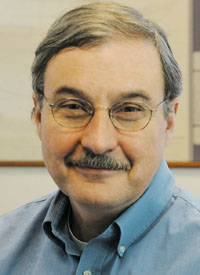Mrs. Siler’s Holiday — Part II
I’ll confess that my reading holiday did indeed involve jumping on a plane and landing in a distant place. Not to the south of France, but to Boston, where the Nieman Conference on Narrative Journalism is taking place.
An offshoot of Harvard University’s prestigious Nieman Fellowships for mid-career journalists, this annual conference brings together some of the best and the brightest of the world’s storytellers over a weekend.
 |
| Photo by Boston University |
I had the great fortune of attending a “master class” this morning with Lou Ureneck, chair of Boston University’s Journalism Department and author of Backcast: Fatherhood, Fly-Fishing and a River Journey Through the Heart of Alaska. Lou also happens to be a friend of my Wall Street Journal colleague Steve Stecklow, who described Backcast as one of the best memoirs he’d ever read.
I’d agree – and not just because so many of the issues Lou explores in the book overlapped my experience as a parent of a soon-to-be-teenager and as a child of divorced parents. But what made Lou’s book stand out for me was his very distinct voice, which I would describe as human, funny, slightly laconic, and enormously likeable.
Here’s an example of what I mean:
I knew that the parents of teenagers are pitiful and hopeless in the eyes of their children. I took some solace in the thought.
In the last year, at various times, Adam (Lou’s son) had advised me that I had bad breath, thinning hair, body odor, a protruding gut, and that I slouched and made too much noise when I ate. Of the two parents, fathers are especially disgusting to children: They have patches of hair on their shoulders, and hair grows out of their ears and nose, they eat onions and sardines, and their toenails grow brown and cracked. One morning, I had made the mistake of coming out of the bathroom after a shower in my underwear.”
“Dad, that’s gross!”
Nothing was as vile to Adam as the sight of his father in his underwear. I had trained myself to chew slowly and quietly. I even swallowed with care. Adam had watched me across the kitchen table, listening.”
“Nobody eats as loud as you do, Dad. I don’t even know how you do it.”
I kept a supply of breath mints. I sucked in my stomach around him. And I never, ever, went around in my underwear. As the parent of a teenager, I had learned to keep my capacity for being disgusting to a minimum.
Lou told our class, made up of a dozen or so accomplished journalists and authors, that he had rewritten the first pages of Backcast a hundred times. Literally, a hundred times. And for him, the hardest part was getting the voice just right. Well, congratulations, Lou, because you did. What a wonderful book.
Tom French’s session on Sequencing was terrific too. He started by projecting the text of an email he’d received from his son on a screen: (nat+hockey stick+momentum+my eye+ow) explaining how that very short communication told the story of how his son Nat had gotten a black eye. He also mentioned that he’s been working on a multi-part series about zoo animals. I’m going to keep an eye out for that one.
My last session today was titled “Behind the Blue Pencil: Editors Talk about the Long Form,” featuring Jon Marcus, the former editor of Boston magazine, Larry Habegger, co-founder of Travelers’ Tales Books, and Vanessa Mobley, a senior editor at The Penguin Press in New York.
I asked Vanessa to tell us about her editing of Caroline Elkins’s Imperial Reckoning, a history of Britain’s gulag in Kenya which won the 2006 Pulitzer Prize in General Nonfiction. Based on her Harvard dissertation, Elkins book is a serious, dense book replete with original research. It is also very dark, in that it deals with a very shameful episode in history.
Vanessa explained that three months after buying Elkins’ book, she and the author learned of another book being published on the same subject. To try to beat their rival to publication, Vanessa came to Cambridge and spent a week with Elkins to edit her manuscript. They didn’t end up publishing before their competitor – but their close collaboration produced a book that the New Yorker described as “an extraordinary act of historical recovery.”
After that story, the conference attendees in the audience hoping to land a publishing deal couldn’t make their way up quickly enough to introduce themselves to Vanessa, which was not surprising. Who wouldn’t want such an editor?